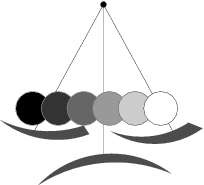
|
Research Unit Sustainability and Climate PolicyProf. Dr. Dr. Felix Ekardt, LL.M., M.A. |

|

|
Research Unit Sustainability and Climate PolicyProf. Dr. Dr. Felix Ekardt, LL.M., M.A. |

|
Recent
Publications and Speeches
Newsletter
The CBD as well as (national and transnational) human rights contain an obligation to halt biodiversity loss since 1993 at the latest, which has been continuously violated ever since. Governments can also be sued on this basis. We show this in a new international paper: here and in our biodiv lawsuit against the German (and indirectly the EU) legislator: here.
Even with zero fossil fuels and greatly reduced animal husbandry, residual emissions remain that must be compensated - even if sufficiency can make this amount of emissions smaller than the IPCC assumes. This requires above all the regulation of forests and peatlands (which are also central to biodiversity protection). Here, economic instruments and regulatory law relate to each other differently than they often do. Three international articles explore this - on forests, on peatlands and on the very problematic large-scale BECCSand other kinds of geoengineering.
German and EU climate policy is contrary to international law and constitutional human rights. Even the unambitious targets themselves are illegal. More on this in our new legal analysis, including critical perspectives on IPCC AR6 here. In April 2021, we won a groundbreaking lawsuit at the German Constitutional Court. See on this in Nature Climate Change, in The Environment and Sustainability.
The existing legal framework on P is strongly characterized by detailed command-and-control provisions and thus suffers from governance problems such as enforcement deficits, rebound and shifting effects. Our new paper focuses on how these challenges could be addressed by economic instruments. The article highlights not only the impact of the instruments on P management, but also on adjacent environmental areas. We pay particular attention to the governance effects on reaching international binding climate and biodiv goals: here.
The production of animal food products is (besides fossil fuels) one of the most important noxae with regard to many of the environmental problems, such as climate change, biodiversity loss or globally disrupted nutrient cycles. This paper provides a qualitative governance analysis of which regulatory options there are to align livestock farming with the legally binding environmental objectives, in particular the Paris Agreement and the Convention on Biological Diversity: here.
Sustainability describes a form of economy and society that is lasting and can be lived on a global scale. The society-changing potential of the claim: ‘More justice between generations, more global justice – at the same time’ faces the peril of getting out sight. Sustainability is just not the trivial general claim to take social, economic and environmental policy serious independent of any relationship in time and space and to strike a sound balance between these aspects. And sustainability in the sense of the Rio Conference 1992 does not mean a ‘Three Column Conception’ at least not in a separating or additive sense. From the stance of policy-making and social sciences (e. g. law, political sciences, social sciences, economics, theology, psychology, etc.) diverse working fields and problems are affected, namely
In 2016, the third edition of “Theory on sustainability” (German: „Theorie der Nachhaltigkeit: Rechtliche, ethische und politische Zugänge - am Beispiel von Klimawandel, Ressourcenknappheit und Welthandel“) by Felix Ekardt was published. The habilitation monography offers a broad approach on the basics of justice and sustainability, theory of human rights, on origins of lacking sustainability and effective climate and resource policy. From autumn 2018 Felix Ekardt will be the editor of Springer Nature's new book series "Environmental Humanities: Transformation, Governance, Ethics, Law". It is open to the entire social sciences, i.e. economics, philosophy, sociology, political science, ethnology, etc. Volume 1 "Sustainability: Transformation, Governance, Ethics, Law" by Felix Ekardt will be published soon and provides an overview of the work of the FNK with completely new perspectives in sustainability research: here.
Downloadable texts: